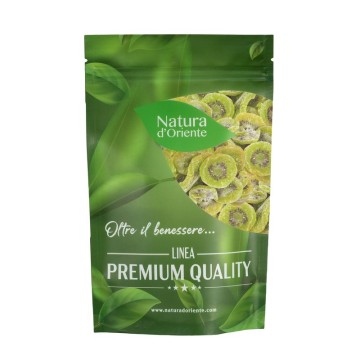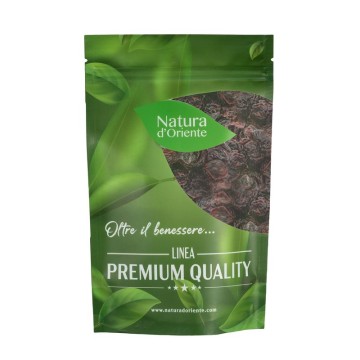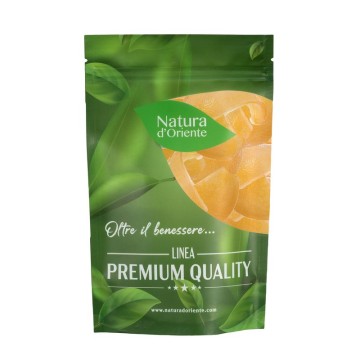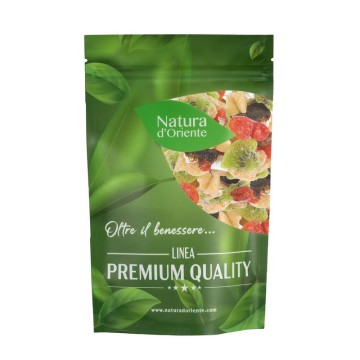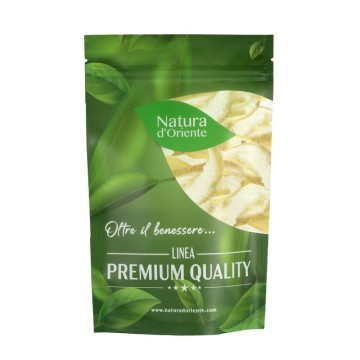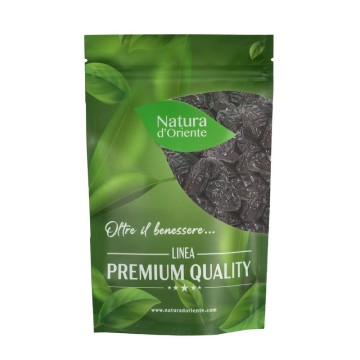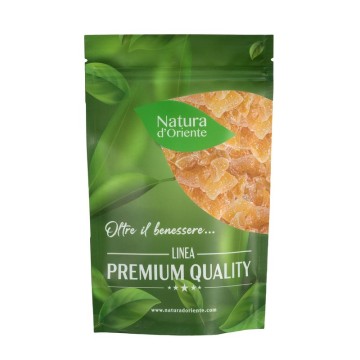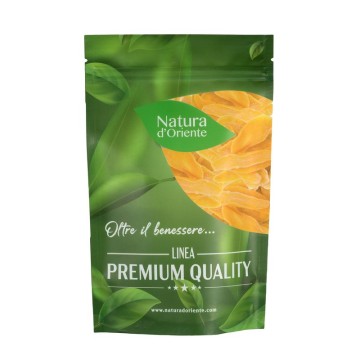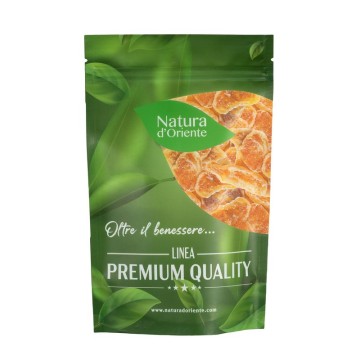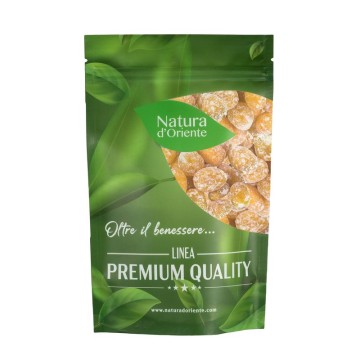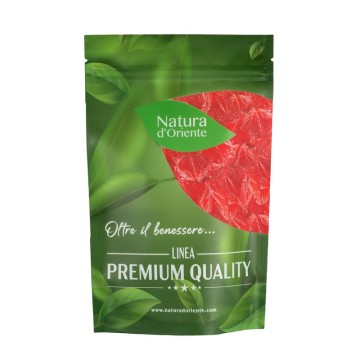Dried Orange Slices
This fruit is known for its important properties, and for its low fat content. The orange is rich in soluble fibers and natural antioxidants, all available in the version of dried oranges with no added sugar.
Delicious, but with all the advantages of fresh oranges: dehydration does not completely change the nutrients.
Dried Orange Slices: properties and benefits
This dried fruit is an excellent source of precious nutrients, especially vitamin C, essential for the proper functioning of the immune and nervous systems.
Vitamin C contributes to tissue growth and repair, by stimulating the production of collagen which builds blood vessel tissue, bone, cartilage, gums and teeth. It is a substance that helps to better absorb calcium (a mineral that is present in the orange anyway), and can help the body absorb other basic nutrients, such as iron.
Vitamin C can have a beneficial toning effect, reducing psycho-physical tiredness and supporting the replenishment of energy after physical effort .
The dried orange also allows a good bio-availability of vitamin A, useful for skin health, beneficial for the well-being of eyesight and eyes - can protect them from age-related problems.
Known throughout the world as the main source of this vitamin, oranges also contain antioxidant substances, which promote the beauty of the skin.
They act by counteracting the damage that free radicals can do to our cells; free radicals are known to cause cellular stress and the appearance of signs of aging (wrinkles, loss of elasticity).
From the point of view of digestive well-being, the properties of the soluble fibers contained in oranges favor the assimilation process and normal blood cholesterol levels.
The low sodium content of natural dehydrated oranges help maintain the well-being of the body at a regular blood pressure level.
Origins and History of cultivation
Known since ancient times as one of the most exquisite citrus fruits, the sweet orange is the most cultivated in the world. The plant easily adapts to variable environmental conditions, and this has also led to uncertainty as to its origin.
In any case, the presence of orange trees in China has been attested for centuries, and it is thought that over 4000 years ago the sweet orange was born here from the bitter one.</p >
Through oriental trades and then the Arabs it arrived in Asia Minor, Egypt, North Africa and finally Europe.
In ancient times, the orange in Greek mythology was evoked by Juno, who brought orange trees as a dowry to her marriage to Jupiter. It was, therefore, a fruit symbol of fertility and love. Indeed, orange blossoms are a good omen for marriage.
During the Middle Ages in Sicily under Arab domination (IX-XI AD), bitter orange trees were grown in gardens as ornamental plants, and it was only in the Renaissance that in Italy, the cultivation of sweet orange began. In particular in Sicily and Calabria, it was introduced by the Portuguese - in many dialects, in fact, the orange was called "Portugal".
The plant gained importance in the eighteenth century, and is still much loved today for the beauty of its flowers and its fruits.To date, it is cultivated in many countries around the world.
p>
Plant and Fruit
The orange tree is the Citrus sinensis L. belonging to the Rutaceae family. Donate the fruits of oranges, called sweet oranges to distinguish them from bitter oranges.
Many scholars think it is a plant - hybrid, a cross between the pomelo and the mandarin.
Citrus sinensis can reach 12 meters in height, with elongated leaves and the famous white flowers. The fruits are round andorange, have a rough skin, and the harvest often gives abundant fruit.
The tree rests for only 3 months, then it flowers and bears fruit even at the same time: the first oranges can be harvested in November, while the last ones in May and June.
Over the centuries, many varieties of orange have been developed, also because this citrus fruit grows all over the world. There are varieties for table fruit, squeezed oranges, for the production of juices, candied fruit and suitable for creating dried oranges. Among the most famous oranges there are those with red flesh, blonde flesh, with thin or thick skin.
Nutritional values of Dried Orange Slices
The orange is an average calorie fruit which in the dried version has about 345 Kcal per 100 grams.
It does not contain fat (0.01%), but fiber (1.5%), protein (about 0.6g / 100g), potassium (about 200mg / 100g ), calcium (about 40 mg / 100 g).
This fruit is rich in vitamin C (about 200 mg / 100 g) and vitamin A. In the naturally dried version, oranges keep sugar levels low, which are not added.
How to consume Dried Orange Slices in the kitchen or as a snack
Oranges transformed into a crunchy snack, sweet and tasty slices, can be used as a snack but also in the kitchen for the preparation of other dishes.< /p>
Dried natural orange can be added to tea to flavor it, to yogurt, as a decoration for ice cream and cupcakes, as an ingredient for cakes or muffins. Furthermore, you can prepare a cereal and dried fruit salad with these slices, or add dried oranges as a side dish in some recipes - in contrast to the savory.
You can alsoadd dried oranges to smoothies or cocktails, to make them different and pleasant.
Like many dried fruits, dehydrated oranges can also be used to create energy bars suitable for sportsmen.
Dried Orange Slices: side effects and contraindications
There are no particular contraindications to taking this fruit, but we know that dried fruit normally contains a lot of sugar. For this reason, even in the natural version with no added sweeteners, it is better not to abuse this food for those suffering from diabetes.
It is good to know that in large doses the dried orange could cause a laxative action or provide acidity to the stomach. The recommended dose of dried oranges in a day is about 20 grams.
![]()

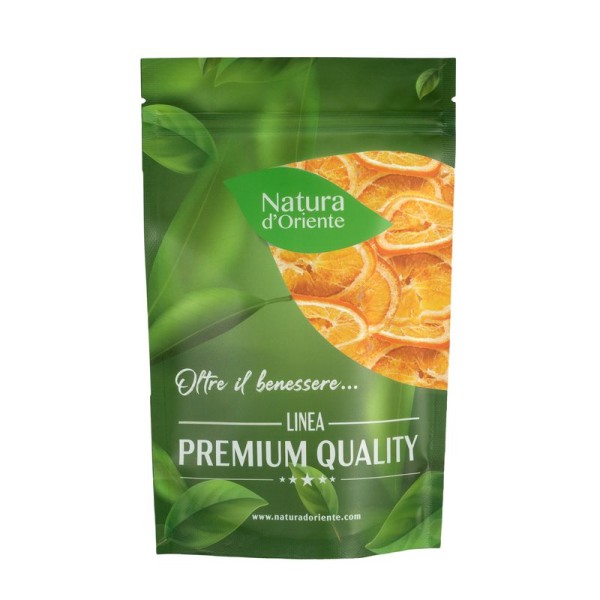











 No reward points for this product.
No reward points for this product.

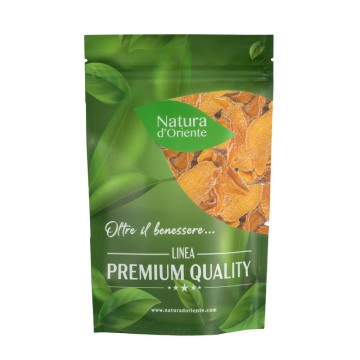
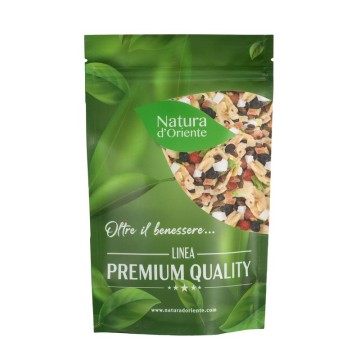
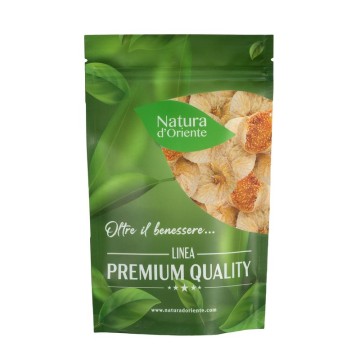
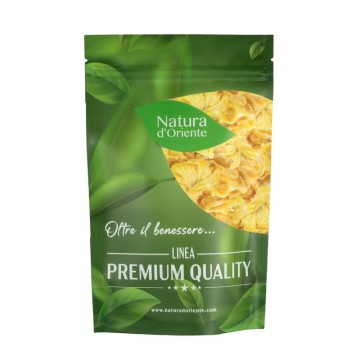
![Natural dehydrated grapefruit without added sugar [NATURADORIENTE]](https://www.naturadoriente.com/10190-home_default/pompelmo-naturale-disidratato-senza-aggiunta-di-zucchero.jpg)
